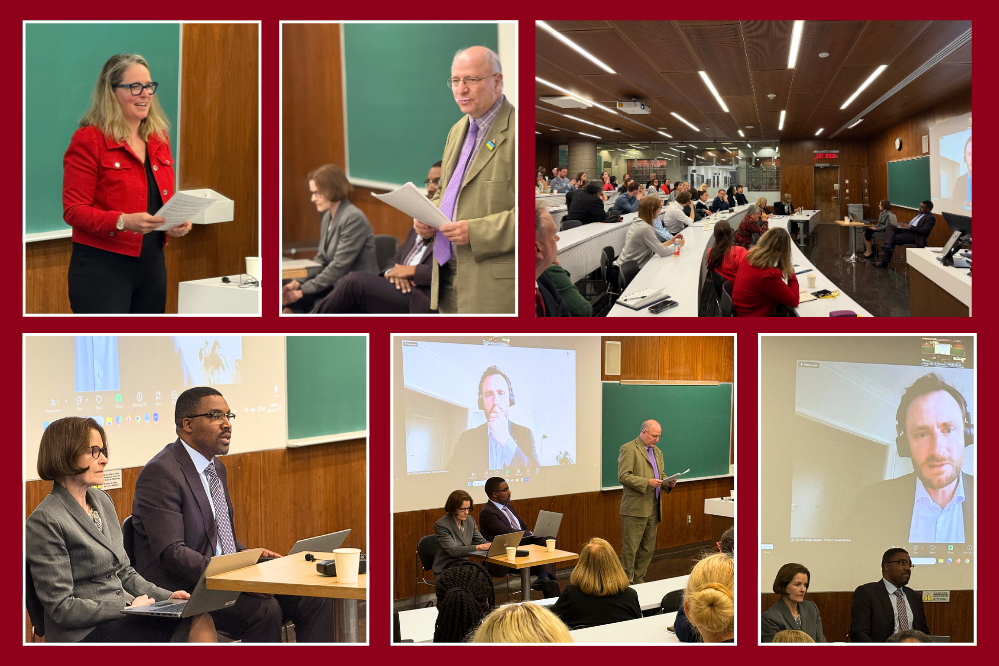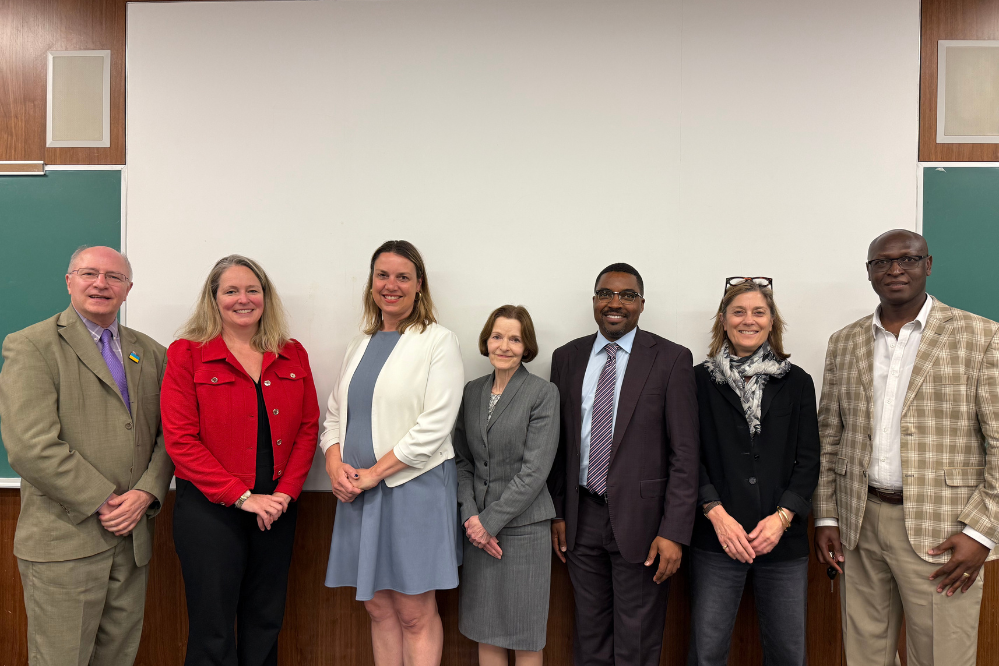The Common Law Section recently hosted a discussion between legal scholars, diplomats and human rights experts on the emerging legal framework based on the Declaration Against Arbitrary Detention.
In partnership with the Human Rights Research and Education Centre (HRREC), and with the support of Global Affairs Canada, the Faculty welcomed members of the Independent International Panel on Arbitrary Detention in State-to-State Relations for their final in-person meeting. The event culminated in a public presentation of the Panel’s research, findings, and key recommendations.
Arbitrary detention in state-to-state relations refers to the practice of states unlawfully detaining foreign nationals or dual citizens. Sometimes referred to as “hostage diplomacy”, states use individuals as bargaining chips in political disputes in order to exert political pressure on another state. The practice violates international law and undermines global security by eroding trust and cooperation between states.
“We were honoured to host a conversation of such urgency and global significance,” said Dean Kristen Boon. “This event demonstrates the essential role universities play in convening global thought leaders to tackle urgent international legal challenges.”
Professor Charles Jalloh, Chair of the Panel and Professor of International Law and Richard A. Hausler Chair in Law at the University of Miami School of Law, Member and Special Rapporteur of the United Nations International Law Commission, framed the issue: “This is not just an interstate issue—it’s about individuals being penalized simply for their nationality. We are seeing the emergence of state hostage-taking, where people are used as bargaining chips.”
Canada’s Global Leadership
Tara Denham, Assistant Deputy Minister at Global Affairs Canada and Canada’s Senior Official for Hostage Affairs, outlined Canada’s leadership in addressing this malicious practice.
“The practice of hostage-taking erodes trust between nations and exacts a huge physical, psychological and financial toll on detainees, their families and their communities,” she noted.
“In 2021, Canada led international efforts and …issued the Declaration Against Arbitrary Detention in State-to-States Relations, to get global solidarity to support human rights and reinforce international law. We now have 81 countries that have signed on, which is fantastic and demonstrates the need that this has to be global in nature.”

The Panel’s legal framework
The Independent Panel, comprising six renowned international jurists, was established to clarify the legal dimensions of arbitrary detention, often referred to as state hostage-taking, in interstate contexts and to provide concrete recommendations to the international community.
At the public event, the Chair and Vice-Chair of the Panel, along with senior government officials and a survivor-advocate, shared key insights from the Panel’s forthcoming report.
Professor Charles Jalloh, presented the Panel’s key proposals to refine legal terminology, enhance consular protections for dual nationals, and formally recognize the practice as a violation of international human rights and humanitarian law.
Building on this, Ambassador Marja Lehto, Vice-Chair of the Panel and Ambassador and Senior Expert at the Legal Service of the Ministry of Foreign Affairs of Finland, referenced the 1979 International Convention against the taking of hostages and emphasized the need to hold accountable not only private or independent actors, but also the states which engage in arbitrary detention.
“The Hostages Convention was negotiated as a response to transboundary criminal activity by private actors. It is still conceived as primarily applicable to crimes by non-state actors. However, the broad definition of an active hostage-taking also applies to active state officials,” she explained.
“One of the Panel’s recommendations is that the community of states, which has already condemned hostage-taking as unjustifiable in all circumstances, also explicitly condemn hostage-taking perpetrated by states.”

A Survivor’s Story
The final speaker, Olivier Vandecasteele, offered a deeply personal account of his 456-day detention in Iran. An experienced Belgian humanitarian aid worker, Vandecasteele was arbitrarily arrested on February 24, 2022, subjected to a sham trial, and ultimately sentenced to 40 years in prison and 74 lashes. He was held in unbearable conditions until his release on May 26, 2023.
He underscored the psychological toll of prolonged isolation and state-sponsored cruelty. He described the use of permanent lighting in the cells and blindfolds being used in all movements, the effect of which “eliminates spatial awareness…overwhelms the senses and prevents sleep,” all of which “creates a sense of hopelessness which, over prolonged period of time, can inflict serious harm to the individuals.”
In 2024, Vandecasteele founded Protect Humanitarians, an NGO committed to protecting humanitarian aid workers and providing support to victims of arbitrary detentions. He advocates for states to prioritize the voices and needs of survivors.
“Recognize and acknowledge the harm that has been done and center the response on what victims and survivors need,” he recommends. “Discuss what are possible … types of justice that the survivors and the families are seeking.”
In closing, Professor John Packer, Director of the HRREC, remarked that “we're facing substantial challenges, some say the polycrisis of our time, when international laws are more contested and under threat than ever in our lifetime.
“Today, we've witnessed a good example of efforts towards more effective and civil international relations.”
